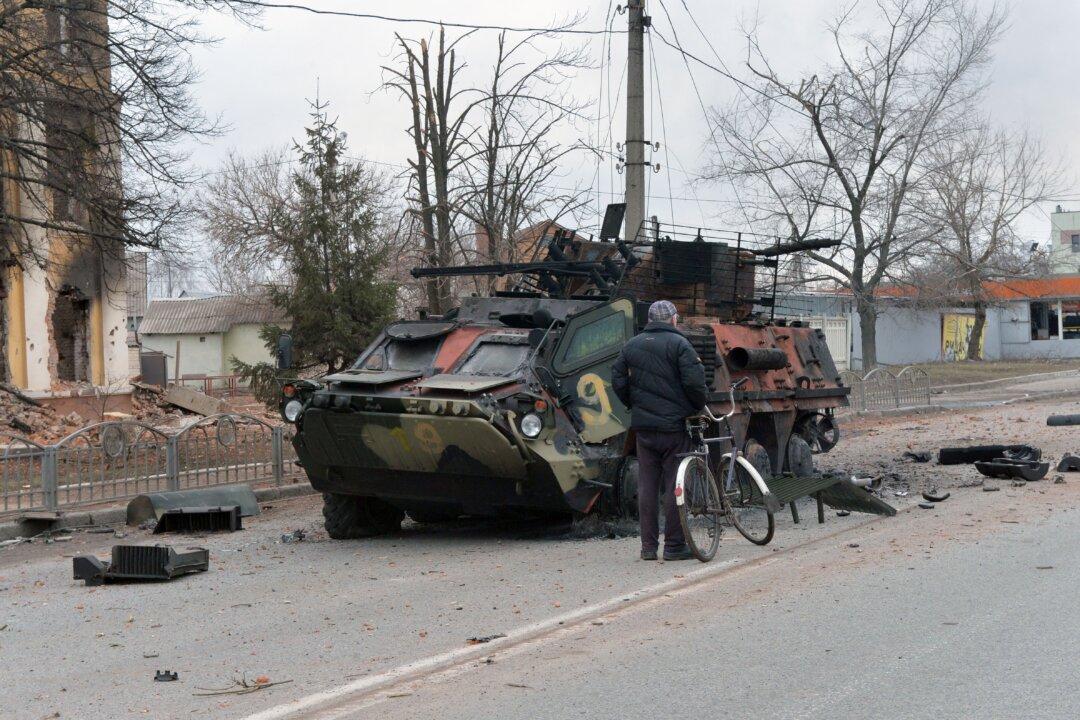Some Canadian soldiers were still in Ukraine on the day Russia began its invasion, a Canadian general told the House National Defence Committee on March 9.
“With the cueing that we had, with the intelligence we had, with what we understood Putin’s plans to be—including some intelligence that air attacks were imminent—it was prudent to return our troops initially in western Ukraine to stay in country as long as we could, and the last few elements of our troops left the morning of the attack,” said Major-General Paul Prévost, director of staff of the Strategic Joint Staff.





